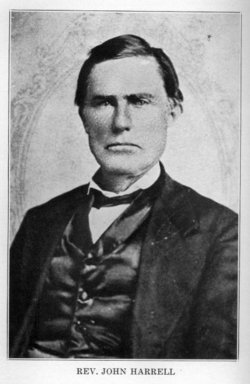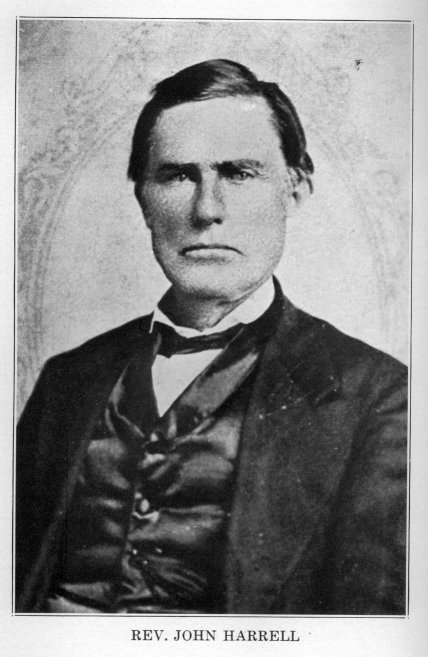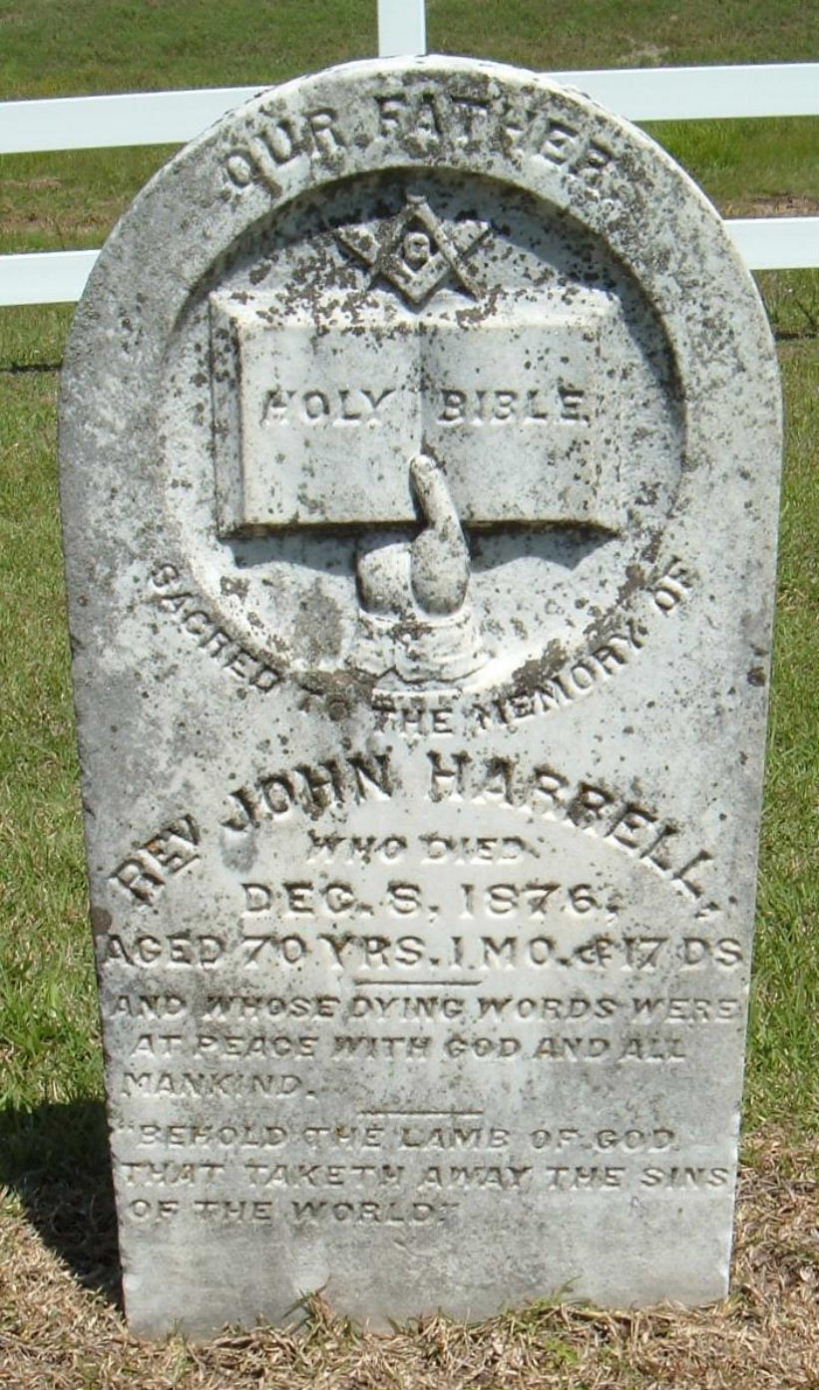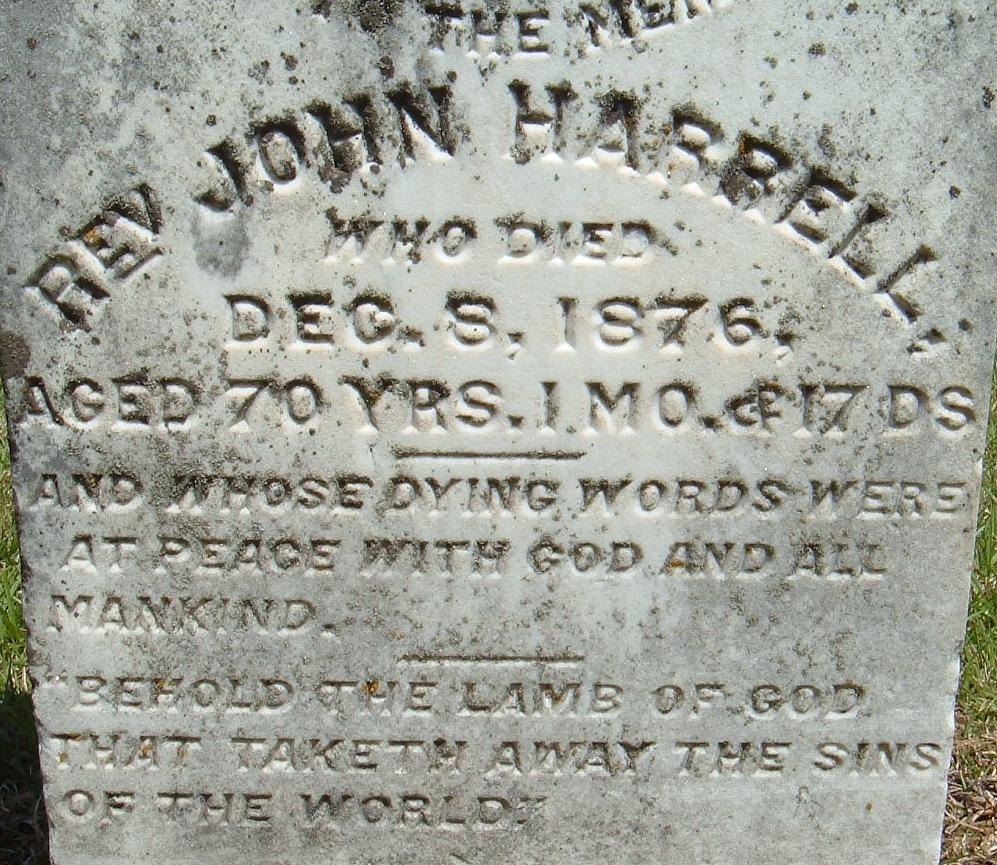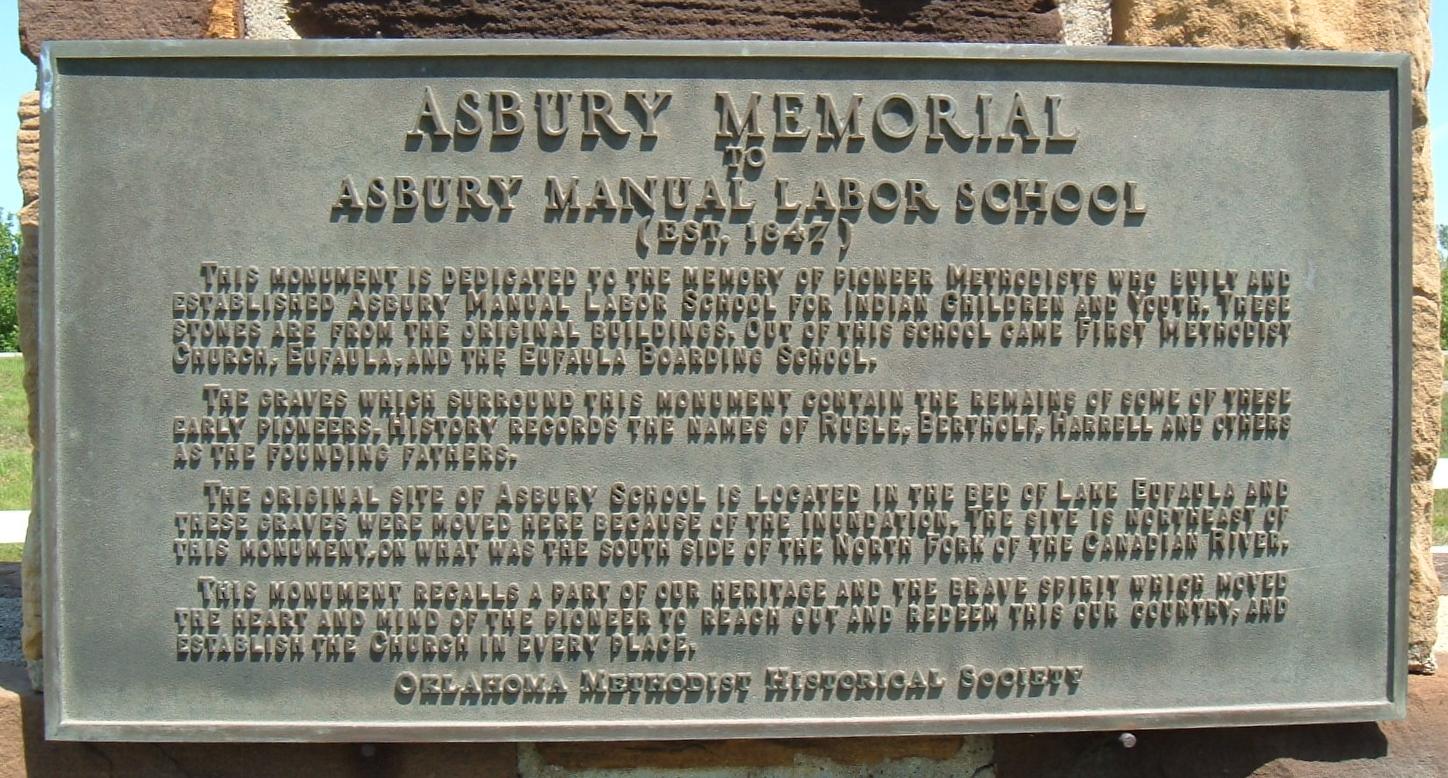John Harrell was born in Perquimans County, North Carolina in 1806. By age 17, he was ordained as a minister in the Methodist Episcopal Church and served in various capacities in his home state. In 1827, he was appointed to the Western Tennessee Conference and acted as the junior preacher in the Wayne District. He rode over a wide circuit, holding services in homes and brush arbors, for there were few churches in the area.
In 1831, the Missouri Conference of the ME Church was in charge of the Arkansas District, but was having a hard time finding ministers for this large area. The Rev. Harrell volunteered to work in this district and came to live near Fayetteville. Here, he met and married Eliza Williams in 1832 and established the first Methodist church in Fayetteville.
While at Fayetteville, Harrell also established the first Methodist circuit among the Western Cherokees. Eventually, both the Cherokee and Creek circuits were placed under the Fayetteville District and Harrell was named presiding elder for this district.
He ministered in western Arkansas and the Cherokee Nation for a number of years before being transferred to the Indian Mission Conference in 1850. He was appointed to head the Fort Coffee Academy in the Choctaw Nation in 1859, where as many as 100 students boarded in those early days. After a time, he was named presiding elder for the entire Choctaw Nation, which included the Chickasaws, as well.
During the Civil War, Harrell served as a chaplain to the Confederate troops under General W.L. Cabell and General Stand Waite. He moved extensively between Arkansas and Indian Territory during the war years. He is said to have also served as a chaplain for the prison in Fort Smith years later and prayed with many of the men facing sentences from Judge Isaac Parker’s court.
Harrell returned to the position of presiding elder of the Choctaw District after the war, but also presided over the Cherokee District and Creek District in his later years. He acted as superintendent of the Asbury Mission near Eufaula for a time, helping to rebuild it after a fire had destroyed the buildings.
Harrell was made superintendent for the entire Indian Mission Conference in 1866. In this capacity he traveled over all of Indian Territory, working to build churches among the western and plains tribes who were being moved to the territory. Much of Harrell’s many years of ministry was “in the saddle.”
In 1881, the Methodist Conference sought permission from the Creek Nation to open a school in Muskogee. They chose to name the school after this tireless missionary. The Harrell International Institute began its classes in the Rock Church near Cherokee Street and Okmulgee Avenue before building a larger structure for a boarding school a little farther east.
Harrell never retired from the ministry. He continued his work right up to the time of his death and literally “died in the harness” while riding to Vinita for a preaching appointment. He had been battling pneumonia and simply collapsed.
Harrell was buried in December of 1876 near the Asbury Mission in Eufaula alongside his wife who had died only the month before. He had logged thousands of miles during his years of service and was remembered by the press as one of the best known individuals in all of Indian Territory.
(Muskogee Phoenix, Jan. 16, 2017, Jonita Mullins, writer)
John Harrell was born in Perquimans County, North Carolina in 1806. By age 17, he was ordained as a minister in the Methodist Episcopal Church and served in various capacities in his home state. In 1827, he was appointed to the Western Tennessee Conference and acted as the junior preacher in the Wayne District. He rode over a wide circuit, holding services in homes and brush arbors, for there were few churches in the area.
In 1831, the Missouri Conference of the ME Church was in charge of the Arkansas District, but was having a hard time finding ministers for this large area. The Rev. Harrell volunteered to work in this district and came to live near Fayetteville. Here, he met and married Eliza Williams in 1832 and established the first Methodist church in Fayetteville.
While at Fayetteville, Harrell also established the first Methodist circuit among the Western Cherokees. Eventually, both the Cherokee and Creek circuits were placed under the Fayetteville District and Harrell was named presiding elder for this district.
He ministered in western Arkansas and the Cherokee Nation for a number of years before being transferred to the Indian Mission Conference in 1850. He was appointed to head the Fort Coffee Academy in the Choctaw Nation in 1859, where as many as 100 students boarded in those early days. After a time, he was named presiding elder for the entire Choctaw Nation, which included the Chickasaws, as well.
During the Civil War, Harrell served as a chaplain to the Confederate troops under General W.L. Cabell and General Stand Waite. He moved extensively between Arkansas and Indian Territory during the war years. He is said to have also served as a chaplain for the prison in Fort Smith years later and prayed with many of the men facing sentences from Judge Isaac Parker’s court.
Harrell returned to the position of presiding elder of the Choctaw District after the war, but also presided over the Cherokee District and Creek District in his later years. He acted as superintendent of the Asbury Mission near Eufaula for a time, helping to rebuild it after a fire had destroyed the buildings.
Harrell was made superintendent for the entire Indian Mission Conference in 1866. In this capacity he traveled over all of Indian Territory, working to build churches among the western and plains tribes who were being moved to the territory. Much of Harrell’s many years of ministry was “in the saddle.”
In 1881, the Methodist Conference sought permission from the Creek Nation to open a school in Muskogee. They chose to name the school after this tireless missionary. The Harrell International Institute began its classes in the Rock Church near Cherokee Street and Okmulgee Avenue before building a larger structure for a boarding school a little farther east.
Harrell never retired from the ministry. He continued his work right up to the time of his death and literally “died in the harness” while riding to Vinita for a preaching appointment. He had been battling pneumonia and simply collapsed.
Harrell was buried in December of 1876 near the Asbury Mission in Eufaula alongside his wife who had died only the month before. He had logged thousands of miles during his years of service and was remembered by the press as one of the best known individuals in all of Indian Territory.
(Muskogee Phoenix, Jan. 16, 2017, Jonita Mullins, writer)
Inscription
And whose dying words were at peace with God & all mankind.
Behold the lamb of God that taketh away the sins of the world.
Family Members
Advertisement
Advertisement
